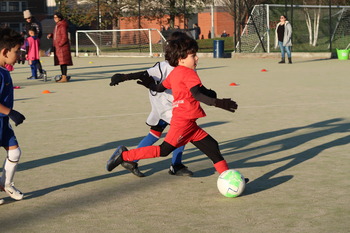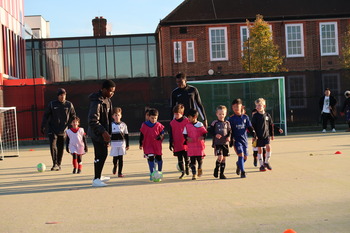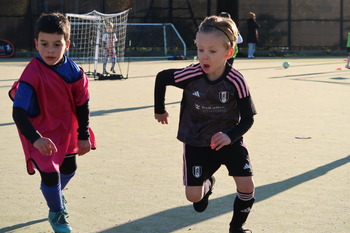Tip #1: Focus on areas of weakness
Within a team environment, a coach is often having to focus on delivering sessions for anywhere between 10 and 25 players. It’s impossible to give the girls the dedicated attention that they need to focus on specific areas of their game that need improvement in such circumstances. Training outside of team football sessions gives a player the chance to do that. If a female player knows that they’ve got a weakness when it comes to shooting with their left foot, then they can use their own personal practice time to address that weakness. Self-training allows a player to work exclusively on areas of the game-specific to them. It also helps them strengthen areas in which they already excel beyond compare.
Tip #2: Take yourself out of your comfort zone
Some players may be inhibited by a fear of failure in a team environment. They may not want to try that Maradona Turn or a 30-yard lofted pass across their own penalty box in case it goes wrong, leading to a negative reaction from their teammates or coaches. We call this playing in the comfort zone. Players who just stick to what they’re good at will often hit a ceiling that they cannot break through to improve any further without taking risks. Training outside of team football sessions removes this risk and fear of failure. When a young female player is working by themselves, there is nobody around to pass judgment on the success of that aerial switch of play or whether a change of direction at pace has come off. Individual training helps a player step out of their comfort zone. It gives them the space to master a skill and become confident enough to execute it to be able to carry it out in a team session.
Tip #3: Increase your training time
There are only so many hours in a day in which a female footballer can work with a coach. Most team football sessions are limited to a couple of hours a week on the training pitch and then perhaps a game situation. That isn’t enough to deliver significant improvements in a player’s game. The more that she practices something, the better at it she becomes – and that’s particularly true when it comes to football. If a player wants to become the best, then they’ve got to put the effort in at doing the homework. Individual training means that they spend more hours playing the sport, and that extra playing time is only going to make them a better players.
Tip #4: Encouragement
Ultimately, the most important thing that a parent can do to help their daughter become a better football player is offered encouragement. You often see a parent telling their daughter off because they haven’t yet mastered a skill or because they’ve made a mistake. This is detrimental to their enjoyment of the sport and ultimately, their ability. Children learn best when they are confident and encouraged. Give them praise for trying and understand that failure is all part of the learning process; when something goes wrong, the best thing a young female can do is learn from their mistakes. They won’t do that if they are too afraid to make mistakes in the first place through fear of failure and the telling-off that comes with it. Many girls fall out of football because playing it is no longer fun. Parents have an important role to play in ensuring that doesn’t happen, by always encouraging and nurturing a love of the sport.
Tip #5: Practise makes permanent
Research has shown that around 10,000 hours of practicing a skill correctly will lead to mastery. At WMF we understand this and adapt our session plans accordingly so that our girls can learn to master skills by being committed to our weekly sessions. Our syllabus is structured to ensure that the girls engage in a variety of topics each week with a different focus to ensure they remain engaged. With a dedicated team of all-female coaches with experience playing at amateur to professional levels, we optimise learning for our players. We create a facilitative, safe and inclusive environment where the girls can develop and, most importantly, have fun!



